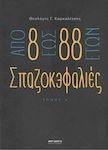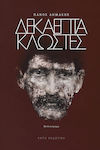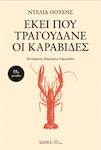from Protoporia
Skroutz Buyers Protection
Set the delivery location to see products according to your choice.
 AustriaEnglish
AustriaEnglish BelgiumEnglish
BelgiumEnglish BulgariaБългарски
BulgariaБългарски CroatiaEnglish
CroatiaEnglish CyprusΕλληνικά
CyprusΕλληνικά CzechiaEnglish
CzechiaEnglish EstoniaEnglish
EstoniaEnglish FinlandEnglish
FinlandEnglish FranceEnglish
FranceEnglish GermanyDeutsch
GermanyDeutsch GreeceΕλληνικά
GreeceΕλληνικά HungaryEnglish
HungaryEnglish IrelandEnglish
IrelandEnglish ItalyEnglish
ItalyEnglish LatviaEnglish
LatviaEnglish LithuaniaEnglish
LithuaniaEnglish LuxembourgEnglish
LuxembourgEnglish MaltaEnglish
MaltaEnglish NetherlandsEnglish
NetherlandsEnglish PolandEnglish
PolandEnglish PortugalEnglish
PortugalEnglish RomaniaRomână
RomaniaRomână SlovakiaEnglish
SlovakiaEnglish SloveniaEnglish
SloveniaEnglish SpainEnglish
SpainEnglish SwedenEnglish
SwedenEnglish
© 20[0-9]{2} Skroutz SA All Rights and Lefts reserved. FAQ | Terms of use | Privacy Policy | Cookie Policy

from Protoporia
Skroutz Buyers Protection



Biographies & Memoirs


Backgammon & Chess
















Greek Fiction Books
Prices are calculated for:Malta, Other Payment Options
"Werther" is a youthful epistolary novel by Goethe (1749-1832) which, when it was published in 1774, achieved enormous success in Germany, was soon translated into many languages, and had a great influence on the life, customs, and even fashion of the time, as there was even a costume in the style of Werther. It became the subject of imitation and parody and immediately made its twenty-five-year-old author famous.
"Werther," a symbol of the Sturm und Drang (Storm and Stress) movement, a precursor of Romanticism, is the ultimate expression of sensitivity and the search for personal freedom, through the conflict between uncontrolled passion and frenzy with the surroundings and social conventions.
Goethe, who had similar experiences to Werther, had the miraculous ability to identify with his hero in his passions while at the same time becoming a judge, maintaining the necessary distance. The novel expressed the concerns of the youth before the revolution of 1789, in line with the quests of authors such as Richardson, Rousseau, and Lessing, to whom Goethe directly refers.
Werther passionately loves - but fails to conquer - Lotte, the fiancée and later wife of his friend. He desires her idealized image and is mentally consumed, unable to adapt to reality. In this drama of absence, he sinks into melancholy and sadness, he envies, he cries, he becomes the emblem of mal de vivre. Solitary and unadaptable, fetishist and narcissist, excluded from his erotic desire, wounded and frenzied, he is filled with a breath of annihilation and seeks the eternal freedom of death.
Through contemplation of the absolute freedom of individual choices against customs and social conventions, he becomes the symbolic great suicidal figure of Romanticism, followed thirty years later by Kleist, another great suicidal writer of Romanticism.
"Werther" is released in a new translation by Stella Nikoloudi and is accompanied by an extensive introduction, a biography of the author, and an Epilogue with texts by Thomas Mann, Roland Barthes, etc.
Specifications are collected from official manufacturer websites. Please verify the specifications before proceeding with your final purchase. If you notice any problem you can report it here.